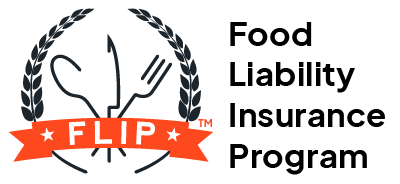Last Updated: May 2, 2024
Picture this: it’s a beautiful, sunny day, and you have a steady stream of hungry customers at the window of your food truck. Dozens of other trucks are parked nearby, and the smell of different cuisines wafting merge into one irresistible, mouthwatering medley.
That’s just one of the joys of being part of a food truck rally!
However, participating in food truck events comes with a set of risks, which can lead to expensive accidents. Nobody likes to think about what could go wrong, but by being aware of potential hazards you’ll be better equipped to manage risk with preventative measures, including our free downloadable risk assessment checklist.
Food Truck Risks at Rallies, Festivals, and Events
Even though it’s not possible to prepare for everything that could go wrong, there are several food truck insurance risks you should be aware of before participating in a rally or other type of festival.
Weather
We try our best to predict the weather, but even the greatest meteorologists get it wrong sometimes. Wind, rain, or shine—as a food truck owner attending an event you need to be prepared for anything.
Most food truck rallies are held outside at the mercy of Mother Nature. Wind and rain are major culprits when it comes to damaging property, so prepare for unexpected weather and batten down the hatches when needed.
System or Equipment Issues
Along with weather, food truck business owners must be prepared for unexpected system malfunctions.
For example, your point of sale (POS) system could go down, you could lose power, or maybe you opened up only to find that your equipment was damaged in transit and now your blender can’t blend!
Theft
Even if all your gear and tech are working fine, there’s a chance some of your business equipment could get stolen. From your generator to your POS system to the equipment you keep inside your truck, any of your gear can be vulnerable to theft when you’re parked at a rally.
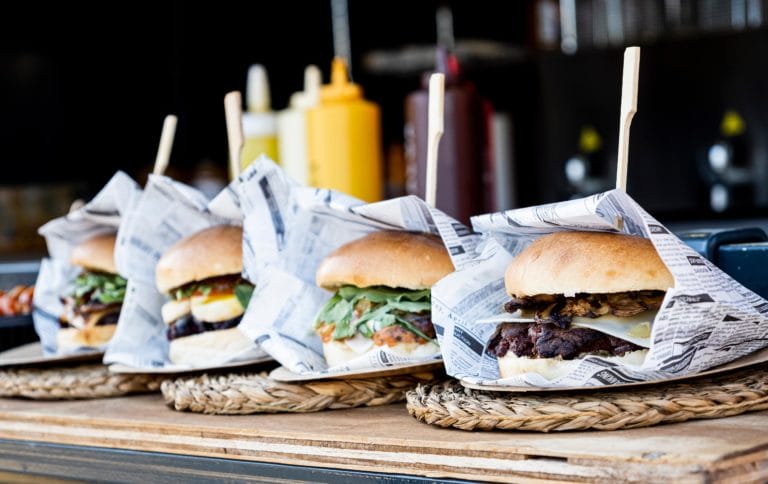
Foodborne Illness or Allergic Reaction
You take great pride in the food you serve, but what happens when someone falls ill from the food they purchased from you?
If one of your customers gets food poisoning after eating your food and ends up in the hospital, they could sue you to pay for damages. The same is true for if they have a reaction to an unlabeled allergen in your food.
To be well-informed and follow safe handling procedures, you can learn about food allergy awareness and how to make your food truck business safer.
Alcohol-Related Incidents
Serving alcohol from your food truck can set you apart from the competition and take your menu to the next level. However, alcohol carries its own set of risks that can lead to serious and sometimes life-threatening incidents.
For example, if you overserve a customer and they drive home intoxicated and cause a car crash, you could be held liable for any injuries sustained by the people they hurt. Or if you accidentally served alcohol to a minor, you could be liable to pay for any property damage or injuries they caused while intoxicated.
Each state has its own dram shop laws that determine what you can be held liable for when selling, serving, or providing alcohol, so be sure to get familiar with the laws in your state.
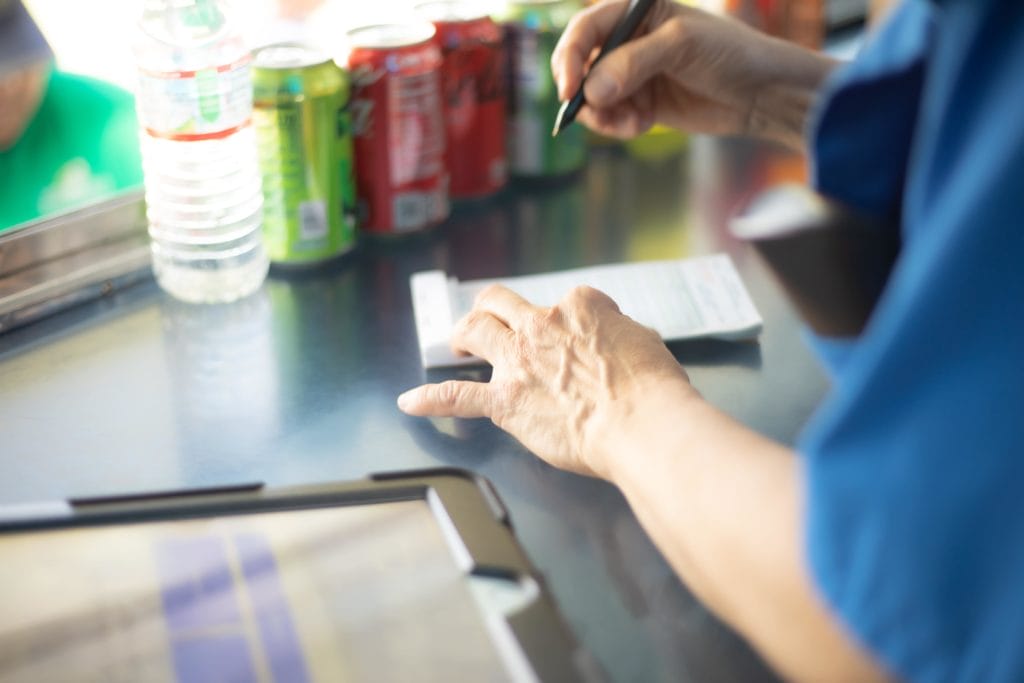
Cybercrime
Chances are you use some type of technology to run your food truck business. Whether it’s a digital POS system or sensitive bank account information on your banking app, any tech you use is vulnerable to cybercrime.
For example, if someone were to hack into your POS system and steal sensitive customer information, such as credit card numbers, that would be considered cybercrime.
In fact, 43% of cyber attacks are targeted toward small businesses. These attacks could include data breaches, phishing scams, ransomware, and more. Cybercrime can happen anywhere, any time—whether you’re at a food truck rally or not.
Common Food Truck Insurance Claims
These risks and more can lead to accidents, and those accidents can lead to expensive claims that financially impact your business.
Luckily, carrying a food truck insurance policy from FLIP means you can receive financial help and peace of mind.
Let’s take a look at some of the most common claims from food truck rallies and what kind of coverage you need to protect yourself from each of them.
Third-Party Bodily Injury Claims
Third-party bodily injury is any event where your business product or service causes bodily injury to someone.
This could include a customer injuring themselves after tripping over some of the equipment you set up outside your food truck, or the awning of your food truck falling off and landing on a customer waiting in line for their food.
Coverage Needed: General Liability
To receive coverage for a third-party bodily injury claim, you need general liability insurance. This coverage is included in FLIP’s base Food Truck Insurance policy and also covers third-party property damage claims.
Third-Party Property Damage Claims
If your business causes damage to the property of another person or business, that’s considered third-party property damage.
Participating in rallies means you’ll be near a lot of other food trucks and parked cars. Close proximity can easily lead to accidents, like your food truck awning blowing off in a windstorm and hitting the food truck next to you.
Coverage Needed: General Liability
A food truck insurance plan with a general liability policy can protect you from the cost of third-party property damage claims.
Equipment Theft Claims
With so many people coming and going at festivals and rallies, it’s all too easy for someone to steal your expensive equipment.
Generator theft is unfortunately common for food truck businesses. With the generators costing thousands if not tens of thousands of dollars, this loss can really hurt.
Five Dollar Bento Box, a popular food truck in Oahu, experienced a staggering loss when its high-powered generator was stolen. That particular generator was worth over $20,000.
Coverage Needed: Tools and Equipment (Inland Marine)
To receive coverage for stolen gear, you need tools and equipment insurance. It’s designed to respond in certain circumstances when you’ve experienced theft of your business equipment.
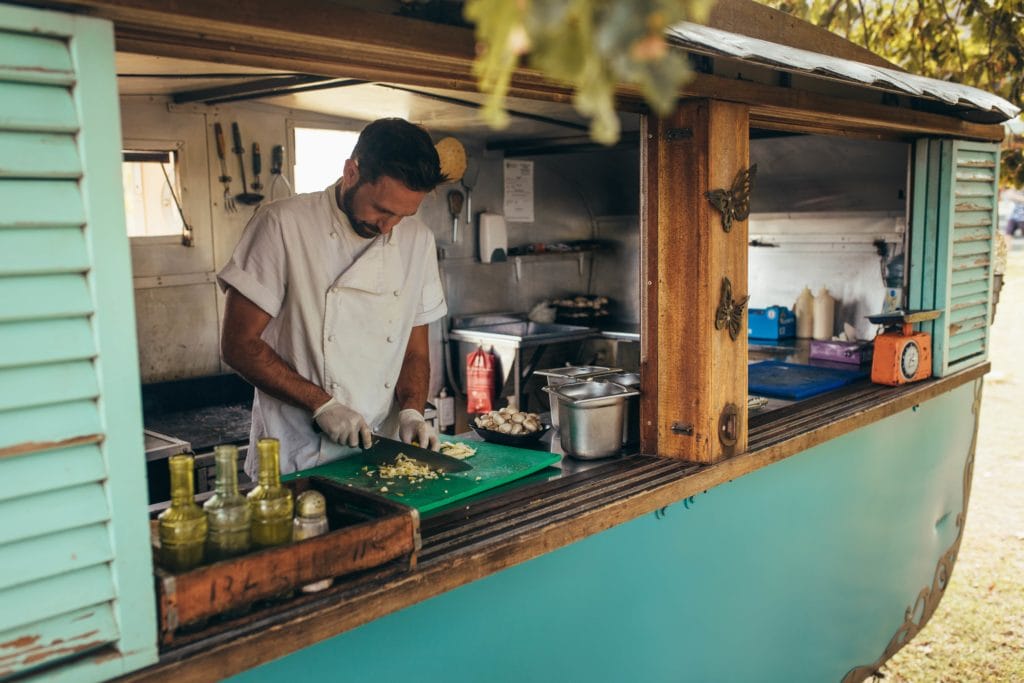
Damaged or Broken Equipment Claims
Even if you take the best care of your gear, there is still a chance it could be damaged. For example, if a sudden rainstorm causes water damage to the device you use to process transactions, it won’t be cheap to replace.
Participating in a food truck rally is great for bringing in a lot of business, but it also puts your gear at risk.
Coverage Needed: Tools and Equipment (Inland Marine)
Tools and equipment insurance is there for you when your gear gets damaged so you aren’t burdened with paying for repairs or replacements completely out of pocket.
Food Poisoning or Unlabeled Allergen Claims
Following best practices for food safety and avoiding cross-contamination can help you avoid giving a customer food poisoning or causing an allergic reaction. However, there is always a risk that one of your customers at an event will contract a foodborne illness or have an allergic reaction to something you served them.
If a customer gets sick after eating at your food truck, they could sue you to recover lost wages and help cover their medical expenses.
Coverage Needed: Product Liability
Product liability insurance is designed to protect you from claims that your food product injured someone or made them sick.
Cyber Liability Claims
Any business can become the victim of a cyber attack, and the cost isn’t cheap. In 2023, the global average cost of a data breach was $4.45 million.
If your food truck business gets targeted by cybercriminals, it could cost you thousands of dollars to restore or replace your data. This is considered a first-party claim.
If the cybercriminals gained access to your customers’ credit card numbers, they might sue you for damages. This is known as a third-party claim.
Coverage Needed: Cyber Liability Insurance
Provide your business with extra protection and include cyber liability coverage in your food truck insurance plan. This type of coverage is specifically designed to protect against the financial side effects of cybercrime. This includes both first-party and third-party claims.
FAQs About Food Truck Event Risks
How can food truck owners effectively manage and reduce risks at rallies, apart from just having insurance?
One of the best ways to manage your risk as a food truck rally participant is to regularly assess different factors that could increase the chance of an accident. It’s a good idea to keep this risk management checklist on hand and to go through it line by line before a rally.
Are there specific regulatory or compliance issues that food truck owners need to be aware of when participating in rallies?
Yes! It’s very important that you familiarize yourself with local laws and regulations for participating in a food truck event. In many cases, the event organizer can provide this information.
Though exact requirements will vary from state to state and rally to rally, here are a few requirements you should be aware of:
- Permits and licenses needed to operate your food truck
- Health and safety regulations
- Fire and safety standards
- Parking and zoning laws
- Liability insurance (likely required by any event you’ll participate in)
- Waste disposal
- Accessibility/Americans With Disabilities Act (ADA) requirements
- Noise and emissions limitations
- Event-specific requirements
What are some best practices for food truck operators to maintain food safety and hygiene, especially in the context of food truck rallies?
The best safety and hygiene practices food truck operators should implement at rallies include:
- Regularly washing your hands with soap and water, especially after handling money, touching your face, or switching between different tasks
- Using gloves when handling food and changing them regularly
- Storing food properly and at appropriate temperatures to prevent bacterial growth
- Avoiding cross-contamination by using separate cutting boards, utensils, and containers for different types of food
- Properly labeling packaged foods and your menu to indicate known allergens
- Using a thermometer to check the temperature of food you’re cooking or storing
- Regularly cleaning and sanitizing surfaces throughout the day with food-safe sanitizers
- Avoiding handling customers’ utensils and food directly and use tongs to serve food
- Making sure you and your staff are up-to-date with food safety certifications
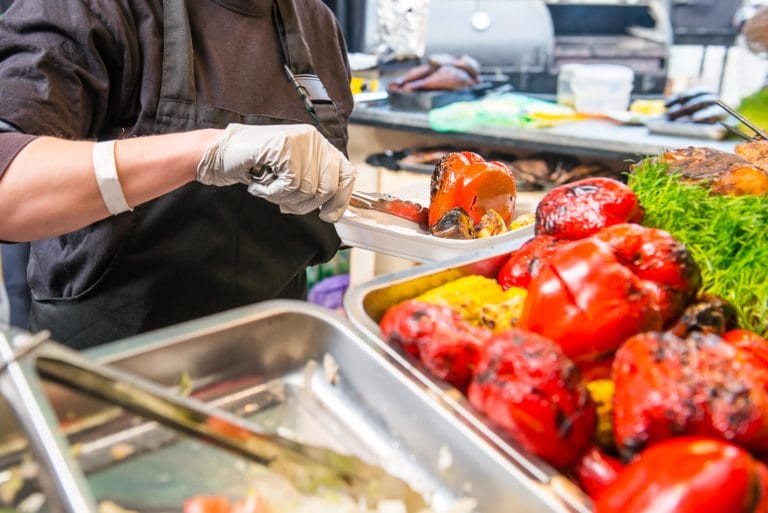
Protect Your Food Truck With Liability Insurance
With so many unknowns and unforeseen risks, taking the time to find the right coverage for you is just as important as running your food truck business.
With food truck insurance from FLIP, you can mitigate—and sometimes eliminate—the out-of-pocket costs associated with these expensive claims.
Starting at just $299 a year or $25.92 a month, you can create a financial safety net that protects your food truck at events with up to $1,000,000 in top-rated general and product liability coverage, as well as up to $10,000 in tools and equipment (inland marine) coverage.
Additional policy options, like cyber liability or tools and equipment insurance, are also available as needed.
While being a business owner is incredibly rewarding, it’s also stressful. Don’t hesitate any longer and relieve a bit of that stress by covering your food truck with Food Truck Insurance from FLIP today.

By Alex Hastings
Alex is a Marketing Copywriter at Food Liability Insurance Program (FLIP). In her free time, she enjoys reading, birding, traveling, and finding any excuse to get brunch.
